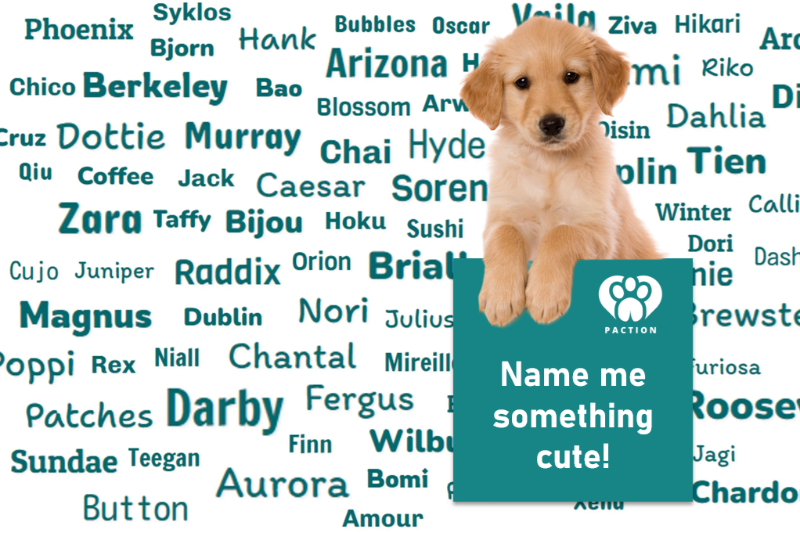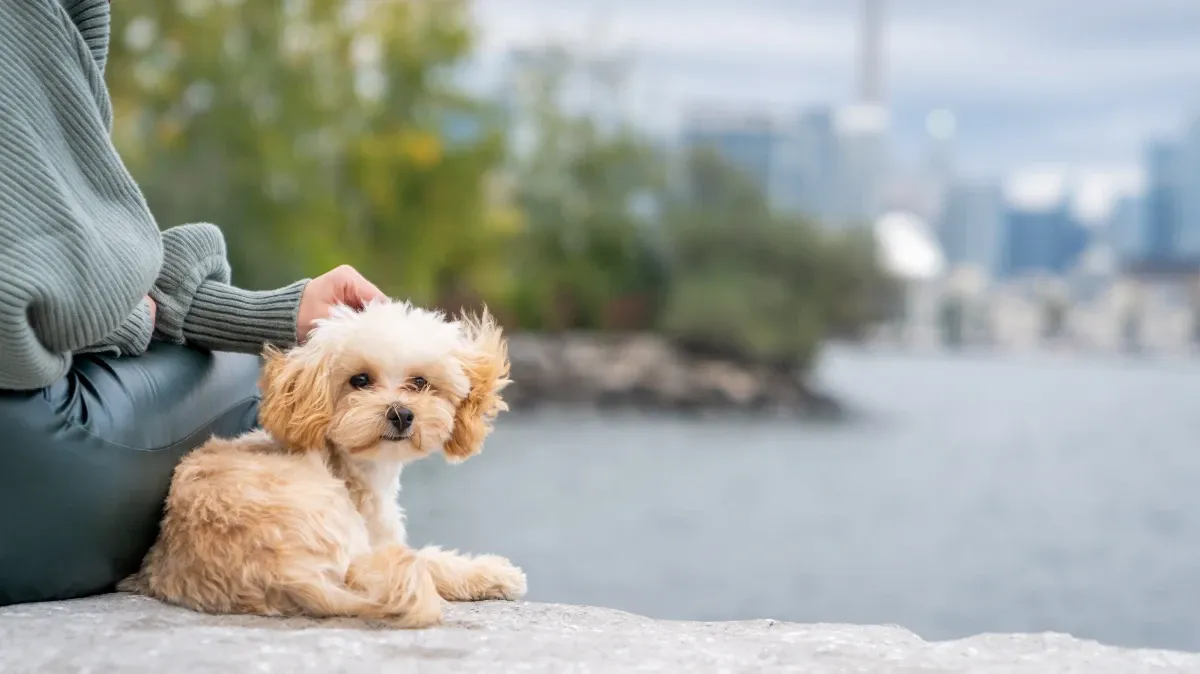Pomeranian
Find Pomeranian Breeders Near You
Connect with certified breeders who have Pomeranian puppies available.
Find Pomeranian BreedersGet to Know Pomeranians
- Miniature Ancestors: Pomeranians are descendants of large sled-pulling Spitz-type dogs from the Arctic. Over time, they were bred down to their current small size in the Pomerania region of Europe, which is how they got their name.
- Lively and Spirited: Pomeranians are known for their lively, energetic, and sometimes feisty personalities. Despite their small size, they have big personalities and are often described as having a “large dog” attitude in a tiny body.
- Luxurious Coat: Pomeranians have a thick double coat that gives them a fluffy, voluminous appearance. Regular grooming is required to keep their coat healthy and free of tangles.
- Intelligent and Trainable: Pomeranians are intelligent dogs that are quick to learn and eager to please. They excel in obedience training and can be taught a variety of tricks, making them a delight to train.
- Royal Companions: Pomeranians became especially popular in the 19th century when Queen Victoria of England fell in love with the breed. Her interest in Pomeranians helped elevate their status as fashionable companion dogs.
Breed History
The Pomeranian is a small, lively toy breed that originated in the Pomerania region of Central Europe, now part of Poland and Germany. Named after the historical Pomerania region, the breed was initially larger but was selectively bred down to its current small size. Pomeranians were originally bred as working dogs, herding sheep and pulling sleds, which explains their alertness and strong-willed nature. The breed gained royal favor when Queen Victoria of England took a liking to them in the 19th century, after which their popularity soared. Today, Pomeranians are cherished as companion dogs, known for their vivacious personality, fluffy coat, and endearing looks.
Personality and Behaviour
- Outgoing and Social: Pomeranians are known for their extroverted and social nature. They are friendly, affectionate, and enjoy interacting with people and other pets. Despite their small size, they have a big personality and are not easily intimidated, often acting as if they are much larger than they actually are. They are generally good with children, although their small stature requires supervision during interactions to prevent accidental injury.
- Intelligent and Independent: Pomeranians are intelligent and quick learners but can also be somewhat independent and strong-willed. They enjoy mental stimulation and excel in activities such as obedience training and puzzle toys. However, they can sometimes be stubborn, so patience and consistent training methods are key. Positive reinforcement techniques work well with this breed.
- Alert and Protective: Pomeranians are alert and make excellent watchdogs. They are quick to bark to alert their owners of any suspicious activity or strangers, showcasing their protective instincts. Despite their small size, they are not afraid to take on larger animals or potential threats. This watchdog mentality can sometimes translate to a tendency toward excessive barking, which may require training to manage effectively.
Care
- Exercise: Pomeranians have moderate exercise needs. They enjoy short, daily walks and playtime but can adapt well to apartment living if they receive sufficient mental and physical stimulation. Their small size means they are prone to gaining weight if not exercised adequately, so keeping them active is crucial to maintaining their health.
- Grooming: Pomeranians have a luxurious, fluffy double coat that requires regular grooming. Their coat needs daily brushing to prevent tangles and matting. They shed seasonally, and during these periods, more frequent grooming is necessary. Regular bathing, nail trimming, ear cleaning, and dental care are also important to maintain overall health.
- Training and Socialization: Training a Pomeranian can be a bit challenging due to their independent nature and tendency to be stubborn. However, they are highly intelligent and respond well to positive reinforcement methods. Early socialization is important to prevent excessive barking and aggression, as Pomeranians can sometimes be wary of strangers and other animals. Exposure to various people, environments, and experiences will help them develop into well-adjusted and confident dogs.
Pomeranian Summary
How Much Does It Cost to Own a Pomeranian Per Year?
Determining the cost of owning a Pomeranian is essential for responsible dog ownership. Use our calculator to estimate expenses, including food, grooming, veterinary care, and more.
The Ultimate Dog Cost Calculator
 Calculate Now
Calculate NowFrequently Asked Questions About Pomeranian
When you talk to a breeder, you're not just asking “do you have available Pomeranian puppies?” You're looking for a match in the process of rehoming a dog. As a prospective dog owner, you are assessing how predictable the dog's health, temperament, and long-term welfare will be and whether the breeder's practices reduce avoidable risk.
You should engage in a conversation about the following topics:
- Which health tests and genetic screening do you do specifically for Pomeranian, and can I see the results?
- What do you do if a puppy develops a serious genetic condition? What contract, policies and support do you offer as a breeder?
- How are puppies raised from birth to 8+ weeks? Ask about socialization, philosophies on early neurological development, handling, and exposure.
The real cost of a dog isn't just the puppy price. After year one, the cost of a dog includes the predictable annual costs + the unpredictable “risk costs.” Your goal is to make the cost legible before you commit, as one of the top causes of surrendering a dog is not being able to afford the dog in later years.
To help you assess these costs, Paction has created the Ultimate Cost Calculator. You can also read an article written by a Paction breeder on why a prospective dog owner should focus on the ongoing costs of dog ownership and not “how much” the puppy costs.
Every dog breed has certain health issues that tend to occur more often, but what matters most is how predictable and preventable those risks are. For many breeds, common concerns include inherited conditions (such as orthopedic, eye, or cardiac issues) as well as lifestyle-related challenges like weight management, dental health, skin or ear problems, and anxiety.
Responsible breeders help reduce inherited risk through appropriate health testing, careful selection of breeding pairs, and transparency about family history. To understand more about responsible breeding programs that prioritize health and genetic screening of breeding pairs, check out Making Science Simple: Canine Genetics for Puppy Shoppers.
As an owner, you play an equally important role. Consistent preventive veterinary care, proper exercise and enrichment, healthy nutrition, and early screening can significantly improve long-term health outcomes.
Whether a Pomeranian is right for you depends less on the breed itself and more on how well its typical energy level, temperament, and care needs align with your daily life. Important factors include your schedule and activity level, living environment, household dynamics (such as children, other pets, or allergies), and tolerance for noise or independence. Long-term fit also comes down to maintenance like grooming, training needs, and how often you travel or rely on outside dog care.
Use Paction's Dog Breed Matchmaker and Pup Time Estimator to find out more about what dog is right for you.


